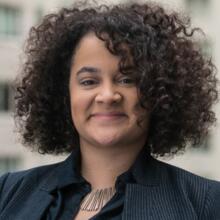On March 20th, Shanesha Taylor of Scottsdale, Ariz., was arrested for leaving her children in a car while attending a job interview. Taylor, who is 35 and homeless, left her two-month-old and two-year-old in a car, which was reportedly also their home. The mother stated that leaving her children in the car was the only option because she had no one to care for them. After the interview, the 35-year-old mother was arrested for child abuse and her children were placed with Child Protective Services.
Taylor’s actions are by no means condonable. However, the mother’s desperation serves as a harsh reminder of the reality that many impoverished Americans face. As millions of U.S. families struggle to make ends meet, many are attempting to find jobs and homes without viable childcare options. So why, despite this demand, is there a lack of such a lack of childcare programs in the United States?
The answer lies in early childhood education programs. Working and homeless parents, primarily mothers, have very few options for pre-kindergarten childcare. Compared to countries such as France, Belgium, Japan and Spain—which offer subsidized and well-regulated childcare for practically all parents—the United States is very far behind. A report released last year by the Center for American Progress stated, “the United States is getting beat when it comes to preschool.” By not allocating proper funds to child care, the government has widened the early education access gap, which according to the CAP report has led to the United States ranking “behind most of the countries in the Organisation for Economic Co-operation and Development, or OECD.”
U.S. policymakers should take these findings to heart. What can be done? First, we need to do a better job making affordable childcare accessible to all parents. Mothers and fathers should not have to choose between childcare and job security. The government can begin by providing states with further funding for early childhood programs. States would then have more resources to provide child care options for parents that are homeless or living paycheck-to-paycheck. Second, the federal government can increase its funding to the Head Start Program. Head Start provides early childhood education, along with a variety of other resources, to low-income families. By increasing funds for Head Start, Katie Hamm, the Director of Early Childhood Policy at CAP, states that the federal government “would allow programs…to expand access to more families” in need.
Third, the government should support programs to help educate parents trying to navigate the job market while living in poverty, specifically targeting single mothers and fathers. According to an article by Derek Thompson in The Atlantic, poverty affects an individual’s whole mindset. He asserts that it “hurts our ability to make decisions about school, finances, and life, imposing a mental burden similar to losing 13 IQ points.” The cycle of poverty often feels unremitting for many. This forces individuals, as Thompson states, to “abandon…long-term planning entirely, because the short-term needs are so great and the long-term gains so implausible.” With access to programs to help navigate these challenges, the working poor can learn to see beyond immediate crises and plan for the future.
Finally, as a society we need to stop stigmatizing poverty. We cannot keep pushing the poor out our minds, viewing them as “others” living on the outskirts of society. We must realize that Shanesha Taylor is, sadly, not an exception. She is the reality of millions of Americans across the nation, struggling not just to make ends meet, but also attempting to provide stability and support for their families.
Olga Segura is an assistant editor at America.








